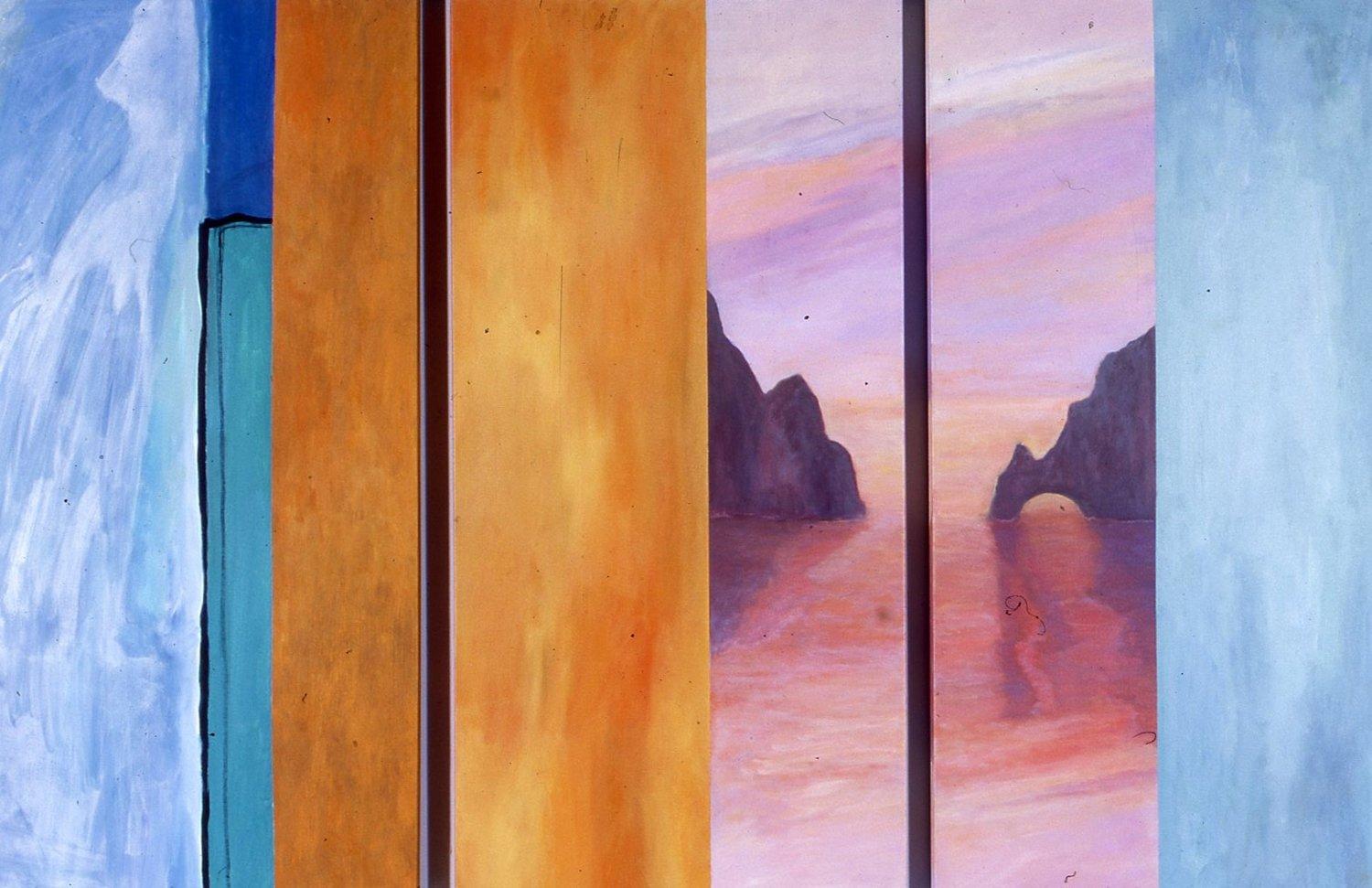 Drawn to the spider plants in our bow window, a hermit thrush hit the glass and fell to the ground. We barely knew its name. A song sparrow, I suggested yesterday, spotting it on the suet feeder, fooled by the streaks on its breast. It’s too big you said
Drawn to the spider plants in our bow window, a hermit thrush hit the glass and fell to the ground. We barely knew its name. A song sparrow, I suggested yesterday, spotting it on the suet feeder, fooled by the streaks on its breast. It’s too big you said
joining me at the window and taking my arm as it flew away. It jerks its tail like a wren, I wondered aloud, looking at the empty feeder,
but it’s not a wren. Today you nailed it, the definitive contrast of olive back and rusty tail, “our only thrush with the habit of slowly raising its tail several times a minute,” you read jotting the date in the margin, and—field guide in hand—you looked up
as the thrush flew into the glass with a thud.
I was playing guitar in the study, practicing major seventh chords in a series up the neck, and when I finished and walked upstairs you met me at the landing, almost in tears, holding the guide open in your hand.
Later, I turned the bird over with the blade of my shovel, admiring the greenish back with feathers folded in like braided hair, but smoother, seamlessly plaited. The body slumped
when I scooted the shovel under it, lifeless eyes lacking luster, but when I lifted it, the tail jerked once, so I carried the limp bird to the edge of the yard, setting it down behind a rock, and watched, hoping it was merely stunned.
The major seventh is the jewel in the crown of chords, the interval between the tonic that names it and the full seventh note above so wide that it nearly laps the scale, the sound seeming to swell. When I play a sequence up the neck, each chord evolves into the next in a pattern on the rosewood fretboard,
a sonorousness so smooth it blends with the silence around me
and lasts forever. The chords still echoed in my head when I returned to the woods’ edge later that evening and looked behind the rock hoping the thrush was gone. I didn’t see it at first in the overlay of twigs and leaves
and looked back at the window to alert you with a thumbs up, but you weren’t there. Only the spider plant, a cascade of horizonal lines and dangling clusters scribbled on glass that lured the thrush in a language I don’t understand. Who knows what it said? Safety, maybe, since the thrush likes to disappear in the branches of shrubs,
and vanish it did, I thought. It woke with a jerk of its tail in these leaves under the thicket of laurel and, startled into flight, floated like a chord into the silence above the woods. But no. Looking down again, I saw
the reddish tail hidden in a thatch of fallen limbs that spread across the wood’s floor and felt the purely human sorrow of naming
what I cannot save or know.
__
Steven Harvey is the author of The Beloved Republic, the winner of the Wandering Aengus Press Award. He is also the author of The Book of Knowledge and Wonder, a memoir about coming to terms with the suicide of his mother published by Ovenbird Books as part of the “Judith Kitchen Select” series. He has written three collections of personal essays—A Geometry of Lilies, Lost in Translation, and Bound for Shady Grove—and Folly Beach, a book-length personal essay about easing fears of mortality and loss through creativity. He is a professor emeritus of English and creative writing at Young Harris College, a founding faculty member in the Ashland University MFA program in creative writing, a contributing editor for River Teeth magazine, and the creator of The Humble Essayist, a website designed to promote personal prose. He lives in the north Georgia mountains.
Artwork by Barbara Gillette Price

7 comments
Richard Hoffman says:
Sep 24, 2023
Exquisite
Steven Harvey says:
Nov 9, 2023
Thanks Richard!
Lisa says:
Oct 12, 2023
So powerful. I can only hope precautions have been taken to prevent this again. Our windows are full of decals, chimes, and stained glass to keep the birds (yes, a thrush once in a while) from hitting them. The sorrow and strength of your writing is palpable. Thank-you.
Steven Harvey says:
Nov 9, 2023
Thanks, Lisa.
Bonnie R. says:
Nov 21, 2023
Love and sorrow sit side by side; sorrow is inevitable, but love isn’t. It’s work to keep our human hearts open. That’s what I hear this beautiful essayist offering. How I love Steve Harvey’s work.
Anne Lazarus says:
Nov 29, 2023
Feather Friendly is a method to diminish these glass strikes. It is inexpensive. It is a decal with white dots spaced properly apart. The bird thinks the glass is solid and avoids hitting it. You see feather friendly on the glass of environmental centers and vulnerable windows. We can all apply the decal. I brought a Hermit Thrush to the Wild Bird Fund. It hit an ice cream truck window. First put it in a little picnic brown paper bag to quiet it down. Then evaluate. If it gets frisky, release it away from window and other glass.
Polly Hansen says:
Apr 5, 2024
Reading this a second time months apart and it is still rich and poignant and wonderful.